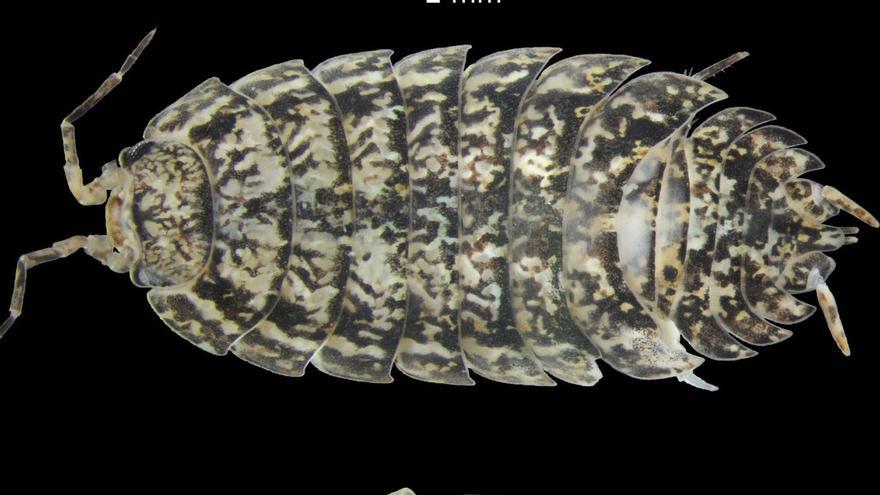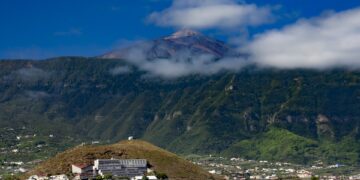
A research team from the Institute of Natural Products and Agrobiology of the Higher Council for Scientific Research (IPNA-CSIC) has identified a new species of cochineal, known as Porcellio Aguerensis, which is an endemic humidity species unique to Tenerife. The name was chosen in honour of Aguere, the indigenous term for the lagoon where it was discovered.
This groundbreaking finding is detailed in the magazine Zookeys and comes from the efforts of Raúl Orihuela-Rivero, Carmen Balibrea, and Heriberto López, who are all part of the IPNA-CSIC Ecology and Evolution Group on Islands, led by Brent Emerson. They were also joined by Víctor Noguerales and Pedro Oromí from the University of La Laguna.
According to a statement from the IPNA, Porcellio Aguerensis is readily identifiable from other cochinillas due to its inability to roll into a ball, its completely smooth surface, and its very delicate uropods, which are the small appendages protruding from its back. It possesses a distinctive glandular field that it shares only with two other species found in La Gomera and El Hierro and Gran Canaria, suggesting a close relationship.
This species inhabits the western peaks of the Anaga Peninsula, thriving in environments dominated by Laurisilva and Tejo forests, where it coexists with other native species, including Porcellio Anagae, and the invasive Armadillidium vulgare.
These moisture cochinillas are isopod crustaceans and should not be mistaken for insects of the same name. A straightforward way to differentiate them is by the number of legs; insects possess only six, while moisture cochinillas have fourteen.
One notable aspect of isopods is their remarkable adaptation to terrestrial environments, which has enabled them to thrive on land and diversify into thousands of species across the globe, from tropical rainforests to arid deserts.
Furthermore, these organisms play a critical role in ecosystems, serving as decomposers of soil, thus making nutrients from decaying organic matter available once more to plants.
The statement points out that research into terrestrial isopods in the Canary Islands has been at a standstill for over ten years and has only recently resumed over the past two years. This new discovery of a species unique to Tenerife has raised the total number of described native species in the archipelago to 36, with 30 being endemic.
Regarding Porcellio Aguerensis, the authors of the study emphasise the necessity to assess its conservation status, considering both the presence of the aforementioned invasive species, Armadillidium vulgare, and the fact that it resides in a region with high tourist traffic.
















